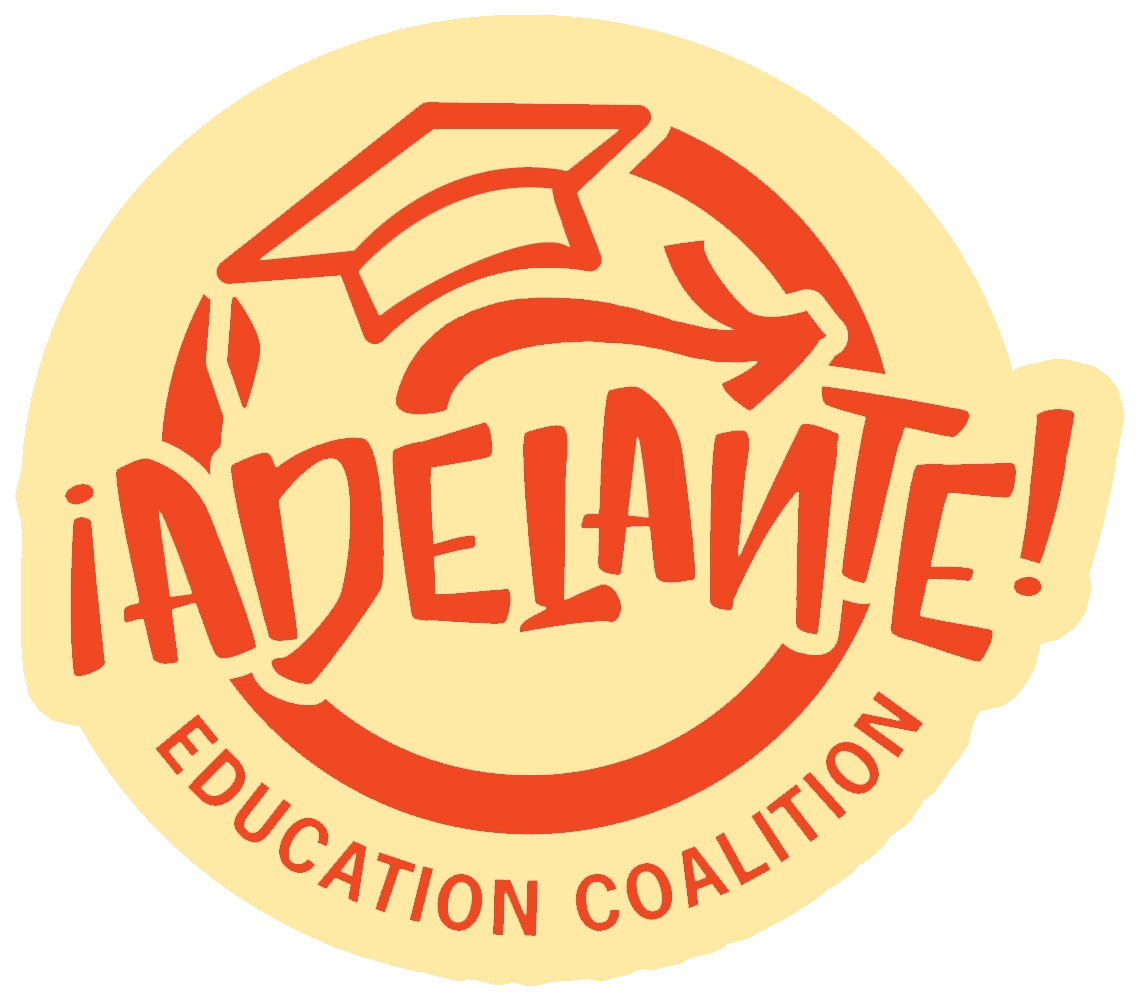Let’s Learn NC is project of the Adelante Education Coalition. This project advocates for the same college tuition for ALL North Carolina students, because higher education should be accessible to all state residents. To learn more about our efforts and the state of education for undocumented students in North Carolina, select a section.
Current Policies
North Carolina Policies
DACA and Tuition Exemptions-Jan. 2014: The purpose of this memo is not to communicate a change in the State Board’s “Admission to Colleges” policy, but to give colleges further clarification on how individuals with DACA classification should be treated under the State Board’s current “Admission to Colleges” policy. Again, it is important to note that the State Board of Community Colleges has not amended its “Admission to Colleges” policy.
National Policies
FACT: Having an educated workforce is a key driver of economic growth and the most important indicator of one’s potential earnings over a lifetime.
FACT: by 2020, 61 percent of jobs in North Carolina will require higher education. Job growth is expected to increase by 21 percent in the same period.
FACT: So far, 16 states have passed legislation allowing certain undocumented graduates of high school to pay in-state rates for college (4 allow students to apply for financial aid). Others have introduced legislation.
“They are part of our future, so it only makes sense to lower barriers to additional educational advancement and achievement….The more education they attain, the better positioned they are to become contributing citizens,” said Republican State Sen. Lloyd Smucker of Pennsylvania after introducing legislation for his state to offer in-state tuition to qualified undocumented students.
FACT: Texas was the first state to pass legislation allowing eligible undocumented students to pay in-state tuition in 2001. Signed by Gov. Rick Perry, the bill received near unanimous support.
FACT: Maryland voters passed a referendum in 2012 to allow qualified undocumented students to pay in-state college tuition.
FACT: The estimated total net benefits to the economy of one graduating class of undocumented students who take advantage of Maryland’s in-state tuition policies are approximately $66 million in 2011 dollars.
FACT: Studies show 31 percent more Latino non-citizens enroll in higher education in states with inclusive in-state tuition policies.
FACT: Inclusive in-state tuition policies reduce the dropout rate of non-citizen Latinos by an estimate of 14 percent, studies show.
“Are we going to send these young people on a path to be successful and be part of the Texas success story? Or are we going to prohibit them because we’re not going to allow them to be able to afford to go to a university, and basically put them over onto government subsistence?”-Republican Gov. Rick Perry.
History
1982

The Supreme Court ruling Plyler vs. Doe in 1982 guaranteed the right of all students, regardless of immigration status, a high school education.
2003
Sen. Eric Reeves (D-Wake) introduced SB 987: Increase Access to Education, which would have allowed an individual who has attended school in North Carolina for at least four years and received a high school diploma from a school within North Carolina or has obtained a general education diploma (GED) issued in North Carolina to be accorded resident tuition status. The bill died in committee.
2004

The NC Community College System (NCCCS) issued a memo stating that local community colleges have the discretion to implement admissions policies that permit the enrollment of undocumented nonimmigrant applicants in curriculum, continuing education and basic skills programs. Undocumented nonimmigrant applicants do not qualify for in-state residency for tuition and shall be charged at the out-of-state tuition rate for curriculum programs.
2005

Rep. Rick Glazier (D-Cumberland) introduced HB 1183: Access to Higher Education & A Better Economic Future, which would have allowed immigrant students who are accepted to any North Carolina public university or community college, and who have graduated from a North Carolina high school and have lived in the state for at least 4 years, to be permitted to pay in-state tuition. The bill died in committee.
2007

Rep. Rick Glazier (D-Cumberland) introduced HB 1183: Access to Higher Education & A Better Economic Future, which would have allowed immigrant students who are accepted to any North Carolina public university or community college, and who have graduated from a North Carolina high school and have lived in the state for at least 4 years, to be permitted to pay in-state tuition. The bill died in committee.
2008

Rep. Rick Glazier (D-Cumberland) introduced HB 1183: Access to Higher Education & A Better Economic Future, which would have allowed immigrant students who are accepted to any North Carolina public university or community college, and who have graduated from a North Carolina high school and have lived in the state for at least 4 years, to be permitted to pay in-state tuition. The bill died in committee.
2009

2010

2012

2013

Representatives Paul Luebke (D-Durham), Rick Glazier (D-Cumberland), Tricia Cotham (D-Mecklenburg), and Charles Graham (D-Robeson) introduced HB 904: The In-State Tuition/Some N.C. Immigrant Youth Act, which would allow all young people who have graduated from North Carolina high schools and lived in the state for at least two years to pay the in-state tuition rates at our public colleges and universities. The bill passed its first reading and was referred to the Committee on Education. In September, The North Carolina Community College systems announced those students with DACA are eligible for business sponsor exemptions, which would allow them to attend colleges within the North Carolina Community College System at the in-state tuition rate.
2014

2015

On March 25th, Senator Fletcher Hartsell (R-Concord) introduced Senate Bill 463 with bipartisan support, calling for any individual who has attended school in North Carolina for at least three consecutive years immediately prior to graduation and has received a high school diploma or a general education diploma (GED) in North Carolina be granted resident tuition status.
2017


